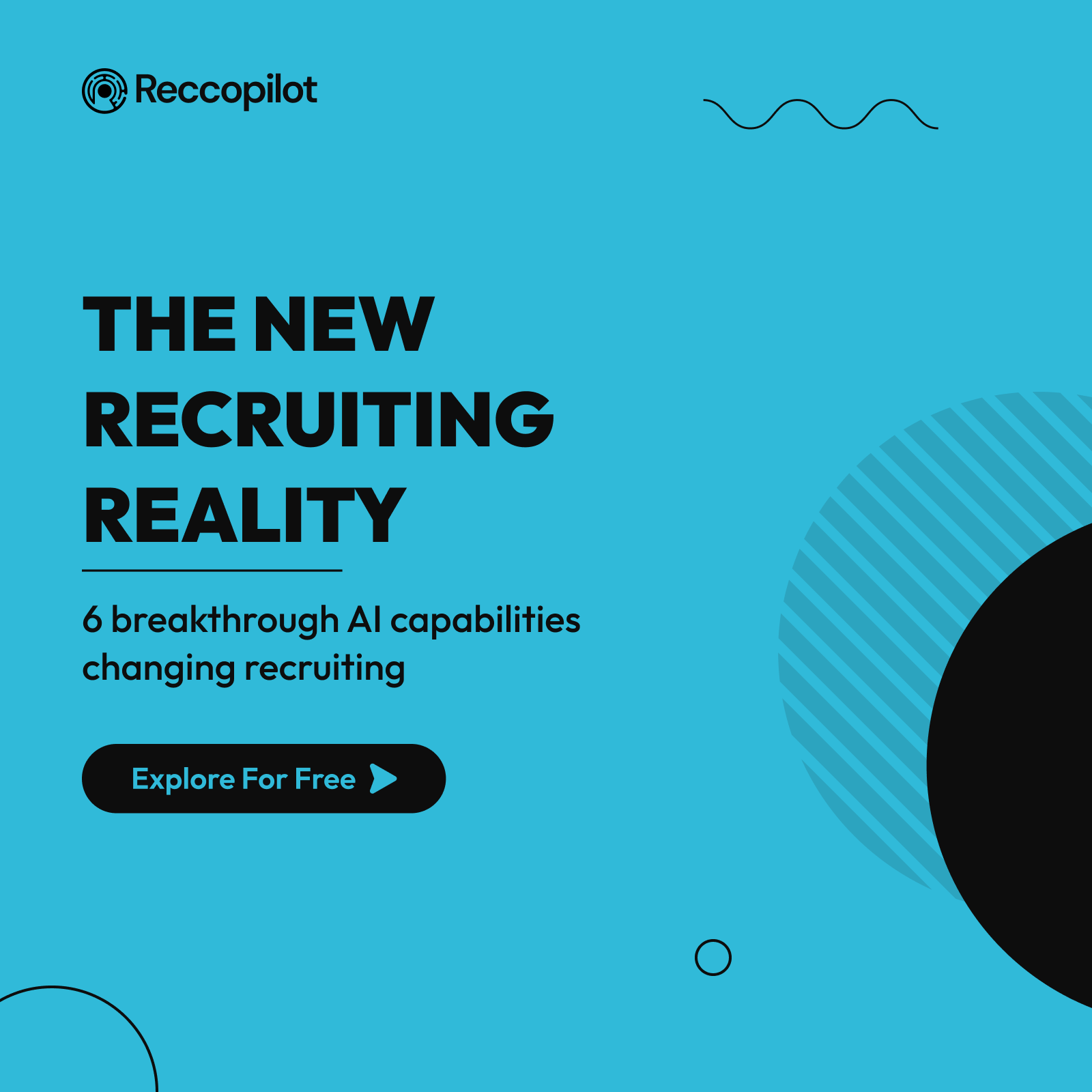6 Game-Changing Ways AI is Revolutionizing Recruiting Operations
Read Time
10 Minutes
Updated On
January 9, 2026
.jpeg)
Ruchi Kumari
Content & Thought Leadership
.png)
Remember when managing candidate pipelines meant juggling dozens of manual tasks, delayed communications, and inconsistent screening processes? Those operational nightmares are quickly becoming ancient history. AI recruiter agent is transforming how recruiting teams operate, finally giving HR professionals the systematic efficiency they need to scale quality hiring and significantly enhance the candidate experience in recruitment.
Here's the reality: while everyone debates AI's broader impact, it's quietly solving recruitment operations' most persistent operational challenges. To understand what is recruiting operations in the modern context, we must recognize that recruiting operations now require intelligent automation to remain competitive. Let's explore six ways artificial intelligence is revolutionizing how recruiting teams manage their core processes and deliver consistent results, demonstrating precisely how to improve candidate experience and implement candidate experience best practices with intelligent automation.

Stop losing qualified candidates due to slow response times and inconsistent follow-up. AI-powered engagement systems, often acting as diligent AI recruitment agent, now maintain continuous, personalized contact with your entire candidate pipeline without overwhelming your team. Understanding what recruiting operations look like today means recognizing how these recruitment operations improvements and talent acquisition strategies are transforming the way teams manage candidate relationships.
What's transforming your recruiting operations engagement strategy:
The recruiting operations win: Teams using AI-driven engagement report 60% higher candidate response rates and 45% reduction in candidate drop-off during hiring processes. Your pipeline stays warm while your recruiters focus on high-value interactions. These automated engagement tools help recruiting operations maintain consistent candidate relationships without manual oversight, directly impacting the candidate experience in recruitment.
Pro insight: When candidates receive timely, relevant updates without manual intervention, AI mention tracking software helps maintain relationship momentum that would otherwise require constant recruiter attention in traditional recruitment operations.
Eliminate communication bottlenecks that slow down your hiring process. AI systems now handle complex communication workflows, ensuring consistent messaging and timely responses across all candidate interactions. For those wondering what is recruiting operations communication management, this represents a fundamental shift in how recruitment operations manage stakeholder communications.
How AI streamlines recruiting operations communication:
According to McKinsey research on AI in HR, recruiting operations using AI communication systems reduce response time by 80% while maintaining 95% message consistency. That means faster candidate progression and stronger employer brand representation across all recruitment operations.
The operational advantage: Your recruiting operations deliver professional, timely communication at scale without sacrificing personalization or quality. To support this, tools like Cliptics offer AI-powered text to speech capabilities ideal for converting onboarding guides, internal communications, or candidate messaging into audio format. This makes key information more accessible across time zones and learning styles, especially in remote or hybrid recruiting environments.
Transform your feedback processes from manual, inconsistent efforts into systematic, data-driven recruiting operations. AI now manages both candidate feedback delivery and internal feedback collection seamlessly. This evolution helps define what is recruiting operations feedback management in the AI era, revolutionizing how recruitment operations handle stakeholder communications.
What advanced feedback automation handles in recruiting operations:
These recruiting operations systems learn from feedback patterns to continuously improve communication quality and timing. Gartner's 2024 HR Technology Report shows that 72% of recruiting teams prefer AI-managed feedback systems over manual processes for consistency and thoroughness in their recruitment operations.
Here's where AI transforms recruiting accountability: comprehensive transparency systems that provide real-time visibility into every aspect of your hiring operations. Understanding what is recruiting operations transparency means recognizing that modern recruitment operations demand this level of systematic oversight to maintain competitive advantage.
How it revolutionizes recruiting operations transparency:
Research from PwC indicates that AI-powered transparency systems improve hiring manager satisfaction by 55% while reducing compliance risks by 40% in recruitment operations. This means better stakeholder relationships and reduced operational liability, ultimately contributing to a smoother candidate experience in recruitment. The transparency dashboard provides real-time visibility into every aspect of your recruiting operations pipeline.
Eliminate the chaos of inconsistent job descriptions and scattered role information. AI-powered systems now manage comprehensive job information architecture that serves both internal teams and candidate communication. To grasp what is recruiting operations job management, we must see how this represents a major advancement in recruitment operations efficiency.
What recruiting operations gain access to:
Some platforms provide predictive insights on job posting performance, suggesting improvements based on market response and competitor analysis. SHRM's latest recruiting technology study highlights how AI-optimized job descriptions in modern recruitment operations receive 3x more qualified applications than traditional postings.

The most significant recruiting operations improvement: AI-powered screening that handles complex candidate evaluation while maintaining consistency and reducing time-investment per application. For teams asking what recruiting operations screening excellence , this transformation represents the future of recruitment operations screening processes.
What transforms your recruiting operations screening:
Teams report 75% reduction in initial screening time while improving candidate quality scores by 50% through systematic AI evaluation processes in their recruitment operations.
The transformation is fundamental: artificial intelligence elevating recruiting operations from reactive task management to proactive strategic execution. By systematizing engagement, communication, feedback, transparency, information management, and screening, AI enables recruitment operations to operate with enterprise-level consistency regardless of team size.

Organizations implementing comprehensive AI recruiter operations aren't just filling positions more efficiently they're building scalable talent acquisition capabilities that directly support business growth. For recruiting teams, it means predictable processes, measurable outcomes, and strategic impact across all recruitment operations.
The future of recruiting operations isn't about technology replacing human judgment it's about intelligent systems enabling human expertise to scale effectively across larger candidate volumes and more complex hiring requirements, fundamentally reshaping how to improve candidate experience for the better through optimized recruitment operations.
